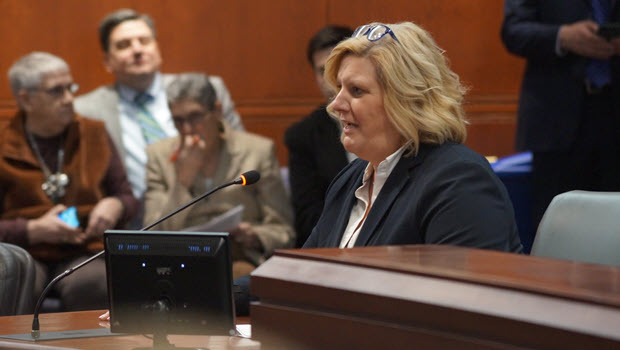The legislature’s Education Committee has been getting public input on a number of bills that could have a big impact on teaching and learning—and next week they’ll hear even more. Make sure teachers’ voices are heard.
Teacher priorities in bills the committee has already raised for public hearing include class size caps, more funding for schools, improving reading instruction, reducing the role of standardized tests, and improving teacher evaluation.
During a hearing next Wednesday, Education Committee members will consider testimony on issues including improving teacher starting salaries, a COVID pension credit for teachers, the elimination of edTPA, raising the kindergarten start age, instituting play-based learning, requiring uninterrupted duty-free prep time, and an educator bill of rights.
“Please speak out on these important issues,” CEA President Kate Dias urges educators. “Legislators need to hear how they impact your daily lives and why change is vital.”
Westport literacy coach and NEA Teaching Fellow Faith Sweeney used her personal experience in the classroom to speak up about a bill that would make changes to the state’s Right to Read Act of 2021. She told legislators that, unless changes are made to the Act, it will continue to harm students and educators.
“The informed observations and lived experiences of teachers who are working directly with students daily could provide helpful insights into effective instructional strategies,” Sweeney said. “We would welcome an opportunity to connect a diverse group of teachers and their experiences to this work.”
Speaking about HB 6763, An Act Concerning an Audit of the State-Wide Mastery Examination, Dias said that our current assessment system has narrowed the curriculum, lowered student engagement, and is out of sync with the skills and abilities employers are looking for in graduates.
“Your proposal specifically addresses alternatives to mastery testing that could assess students’ abilities to collaborate, communicate effectively, think critically and analytically, employ their creativity, assess their own knowledge and learning needs, and be conscious of the impact of their actions, and the actions of others, on civic and community life,” she said. “We urge committee members to implement this audit and streamline testing.”
Kate Field is a former teacher and administrator, and in her current role as a teacher development specialist with CEA, she has helped more than 100 districts resolve serious issues related to educators’ teacher evaluation ratings. She strongly urged the Education Committee to adopt HB 6757, An Act Concerning Teacher Performance Evaluations.
“Educator ratings are unreliable, erode trust between teachers and administrators, and disincentivize innovation and growth. Worst of all, they don’t benefit students,” she said.
New teacher evaluation guidelines focusing on professional growth, meaningful dialogue about teaching and learning, and robust, meaningful feedback instead of ratings will go before the State Board of Education this spring. However, for those guidelines to be adopted and implemented as intended, the legislature must act to remove statutory language requiring educator ratings.
“By eliminating ratings, you can open the door to a more innovative evaluation system that will benefit teachers, administrators, and the students they serve,” Field said.
The Education Committee will hold what is likely to be its final public hearing of the session next Wednesday, and now is the time to speak up. Find out more and submit testimony.







